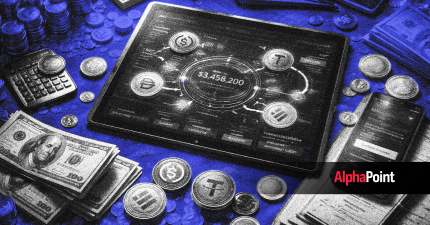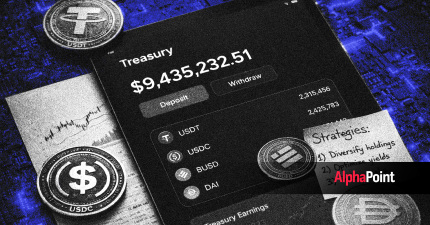How Do Payment Processors Make Money? Breaking It Down
Payment processing companies are crucial players in the financial ecosystem. If you’re a merchant looking to expand your payment options to include crypto or other digital transactions, these companies make it possible.
Payment processors facilitate payments through digital wallets, debit cards, and credit cards, ensuring each exchange is completed securely and efficiently. Think of them as the traffic lights of financial interactions — directing every payment smoothly and on time.
If your business relies on card payments or digital wallets, understanding how processors generate revenue can help you manage costs effectively and negotiate better rates.
Here, we break down the main revenue streams for payment processing companies, giving you insights to make informed decisions for your business.
Understanding Payment Processors
Payment processors facilitate electronic payments by acting as intermediaries between the customer’s bank (issuing banks) and the merchant’s bank (acquiring bank). Their role is to ensure payment details are securely transmitted, allowing for a seamless transfer of funds to the merchant’s account.
Difference Between a Payment Gateway vs Payment Processor
While payment gateways and payment processors work closely together, each plays a unique role in transaction processing. A payment gateway serves as the first point of contact with customers — similar to a point of sale (POS) system — that captures credit or debit card details.
Once the gateway has securely captured these details, it transmits them to the processor. The processor then works behind the scenes to verify the card information and confirm whether customers have sufficient funds in their accounts or wallets. If funds are available, the processor initiates the transfer of funds between the issuing and acquiring banks, finalizing the transaction.
How Traditional Payment Processing Works
Payment processing follows a series of key steps, including:
- Transaction initiation: The customer starts the process by using their card at a merchant’s POS terminal or by entering their card information during online payment.
- Authorization request: The processor encrypts and forwards the transaction details to the merchant’s bank, which then contacts the customer’s bank for approval.
- Verification and approval: If the customer’s account has sufficient funds, their bank assesses the transaction’s legitimacy and approves or declines the payment. If approved, the funds are set to transfer. If it’s rejected, the merchant is notified.
- Settlement and funding: The acquiring bank deposits the approved payment into the merchant’s bank account, completing the transaction.
Main Revenue Streams for Payment Processors
Payment processors generate revenue through transaction fees and additional services like currency conversions. Here’s a closer look at these revenue streams:
1. Transaction Fees
Payment processors often charge transaction fees in different ways, including:
- Flat-rate fees: This straightforward pricing model applies a fixed fee per transaction, regardless of the card type, transaction amount, or payment method (in-person or online). The processing fees could be a fixed percentage of a customer’s transaction amount or a fixed rate plus an extra cost. While simpler than other pricing models, it may lead to significant costs for businesses with high transaction volumes.
- Tiered pricing: Under this model, processors divide payments into three categories: qualified, mid-qualified, and non-qualified. Qualified transactions meet most of the processor’s requirements and incur the lowest fees. In contrast, mid-qualified and non-qualified transactions don’t meet all requirements and thus have higher fees. Determining your total costs under this model can be challenging, as you can’t be sure which category your customers fall under.
2. Monthly or Annual Service Fees
Beyond transaction fees, processors may charge for platform access through monthly or annual subscriptions. These fees can be a flat rate for all merchants or tiered, varying costs based on service levels. For instance, a basic tier may offer essential services, while a premium tier provides advanced features for a higher fee.
Typically, recurring annual or monthly fees cover features such as account maintenance, security, and reporting tools.
3. Interchange Markups
For every credit card or debit card transaction, the issuing bank (customer’s bank) charges an interchange rate, typically ranging from 0.3% to 3% of the total transaction amount, based on the bank and card type. Payment processors add their own markup to these fees to cover their processing services.
As with interchange fees, markups vary across processors, so it’s wise to compare options before choosing a provider.
4. Additional Service Fees
To increase profit margins, many processors offer additional services outside of their standard packages. Depending on your processor, these may include:
- Chargeback management: Some processors charge extra to assist merchants in managing transaction reversals for disputes.
- Foreign transactions: Processors may add fees for handling cross-border payments.
- Currency conversions: For international transactions, some providers may apply premiums on exchange rates, allowing them to profit from each conversion.
Payment Processing in Crypto
Although traditional and crypto payment processors share similar functions — verifying and authorizing transactions — crypto payment processing operates a bit differently. Here’s how:
1. Customer Sends a Crypto Payment
The customer initiates the transaction by scanning a QR Code or entering the merchant’s wallet address. This initiates the transfer of crypto assets from their digital wallet to the merchant’s wallet.
2. Network Validation
Miners or validators confirm the transaction on the blockchain by verifying that the customer has sufficient funds. Once validated, they approve the transaction.
Approval time can vary depending on network congestion, ranging from a few seconds to several minutes or even hours. To expedite processing, users can opt to pay higher transaction fees, incentivizing miners to prioritize their transactions over others on their blockchain network.
3. Confirmation and Settlement
After validation, the blockchain finalizes the transaction by transferring the assets to the merchant’s wallet. Unlike traditional processing, this step bypasses banks and card networks, often resulting in faster and more cost-effective transactions.
What Sets Crypto Payment Processing Apart?
Crypto payment processing stands out from traditional methods primarily due to its decentralized nature. Instead of relying on intermediaries like banks and card networks (e.g., Mastercard and Visa), crypto transactions occur directly on a blockchain network.
This decentralized model eliminates the need for middlemen, enabling a more streamlined transaction process that minimizes delays and reduces associated costs.
If you’re looking for a payment service provider to enhance your crypto transaction capabilities, AlphaPoint offers a comprehensive ecosystem designed for brokers, exchanges, and financial institutions. With secure digital wallets and a robust merchant ecosystem, AlphaPoint enables customers to use crypto assets as easily as fiat currencies while providing merchants with effective tools for managing payments.
Elevate Your Business With AlphaPoint’s Resilient Payment Processing Solution
Payment processing services generate revenue from transaction fees, interchange markups, subscription fees, and additional service charges. With costs varying widely among providers, it’s important for business owners to evaluate options carefully before making a decision.
Choosing AlphaPoint as your payment processing partner means moving beyond inefficient and costly crypto processors. AlphaPoint’s affordable POS system allows merchants to accept both fiat and crypto payments with ease, featuring an interface that streamlines transaction management for simpler payment processing. Additionally, our secure APIs allow for smooth integration of payment gateways into your platform, creating a positive user experience from the first interaction.
Ready to enhance your ecommerce or in-person crypto transactions? Schedule a demo with us today to learn how!


